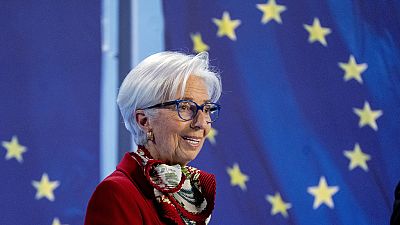Germany slashed its economic forecasts for 2023, predicting a 0.4% decline in its GDP.
Germany's government said on Wednesday that it expects the country's economy to shrink by 0.4% this year, joining a string of other forecasters in revising sharply downward its outlook for Europe's biggest economy.
"We've had a difficult year economically, at a difficult time," said Economy Minister Robert Habeck.
The cause: "the energy price crisis, the need for the European Central Bank to fight inflation and the weakening of important global economic partners", such as China.
The revised forecast contrasted with the 0.4% growth that the government predicted in late April. "We are emerging from the crisis more slowly than expected", Habeck added, but "we have reached the low point and will be moving forward again".
On Tuesday, the International Monetary Fund forecast that the German economy will shrink by 0.5%. A group of leading German economic think tanks last month predicted a 0.6% contraction.
The government predicted that gross domestic product will increase by 1.3% next year and 1.5% in 2025, helped by a decline in inflation. That is expected to average 6.1% this year, but drop to 2.6% next year and 2% in 2025.
The Economy Ministry said it expects the economy to pick up around the turn of the year and then accelerate, helped by recovering consumer demand. It acknowledged that the “necessary fighting of inflation” by the European Central Bank, which has resulted in higher borrowing costs, has been a factor in Germany's difficulties.
Germany has also been grappling with other issues such as an ageing population, lagging use of digital technology in business and government, excessive red tape that holds back business launches and public construction projects, and a shortage of skilled labour.
Last month, Chancellor Olaf Scholz, whose government is grappling with poor poll ratings and a reputation for infighting, urged Germany’s opposition and regional governments to help slash a “thicket of bureaucracy.”
The European Union is also set to be the only G7 country to experience a recession this year, according to the IMF.



